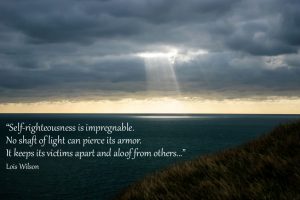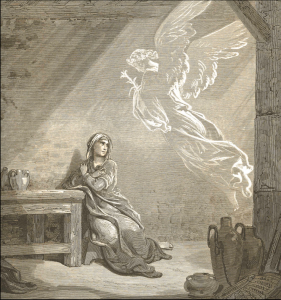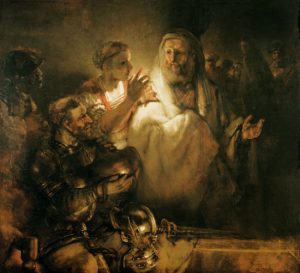Never Talked to a Mere Mortal
“You have never talked to a mere mortal.” {Full quote is at the end of this post}
This CS Lewis quote disturbs me. It confronts me, wrenching a hazy ‘idea’ of immortality from the back of my head and thrusting it tangibly in front of me – on my neighbor’s face. Immortality, it seems, has a nose. Immortality has eyes. My neighbor is an immortal.
I try to stay disturbed. I try not to run from it, holding that quote in mind, ‘I have never talked to a mere mortal’. Never. Not one. All day long, I am brushing shoulders with immortal beings. The passive clerk behind the counter. The frowning man behind me in line. The laughing child in the stroller. Every person is an encounter with eternity.
Conversation, therefore, is never idle. Conversation is always serious because personhood is serious. People talk about frivolous things, of course; a decoration fad or a sports score. But then, most talk will be about passing things for the simple reason that to immortals, all things are passing – except for one another. The current weather, the current art, the current regime – all these are temporal. But people are not. There may be ‘small talk’, but there are no small persons.
Conversation is never idle because every conversation hints redemption. Every encounter between two immortals is pregnant with the possibility of deep calling to deep. We are in danger, in those moments, of seeing and being seen for who we really are. The latent yearning might stir and awaken. We might suddenly remember that, beneath all our distractions, lies a profound experience of homesickness. We are haunted, in CS Lewis’ words, by ‘an inconsolable longing.’
We avoid speaking directly about our yearning for immortality. On the one hand, we are oddly shy about our capacity to hold eternal grace. And on the other, we are foolishly ashamed that we need it. So we pretend that we are less than we are. We forge a conspiracy of silence with others. “I won’t go there if you won’t.” “It is dull here on the surface – but it is safer after all. Maybe the longing will pass.” “I just need a cigarette. Or a vacation. Or a marriage. Or something.” Yet nothing will do. Nothing will fill that eternal void – except for the eternal life of God.
No, we don’t often talk directly about our immortality. But every time we immortals converse, without even meaning to, we hint at it. Our eyes meet for a moment, we hear that certain lilt in the human voice or feel that hanging silence – and we feel the hunger. Every laugh is a reminder of that joy which completes us. Every acknowledged pain rumbles, reminding us just how our deep our internal chamber really is. Every time we are recognized, a core part of us leaps upon being named.
Conversation is never idle. Every time, there is that possibility that the cat might slip out of the bag. There is always the blessed danger that we might remember who we really are and call out for the God of grace to fill us.
“It is a serious thing to live in a society of possible gods and goddesses, to remember that the dullest most uninteresting person you talk to may one day be a creature which,if you saw it now, you would be strongly tempted to worship, or else a horror and a corruption such as you now meet, if at all, only in a nightmare. All day long we are, in some degree helping each other to one or the other of these destinations. It is in the light of these overwhelming possibilities, it is with the awe and the circumspection proper to them, that we should conduct all of our dealings with one another, all friendships, all loves, all play, all politics. There are no ordinary people. You have never talked to a mere mortal. Nations, cultures, arts, civilizations – these are mortal, and their life is to ours as the life of a gnat. But it is immortals whom we joke with, work with, marry, snub, and exploit – immortal horrors or everlasting splendors.”
― C.S. Lewis, The Weight of Glory
If this post has piqued your curiosity we’re offering a seminar in October
called “Barnabas Training Basic” that may be of interest to you.
Simply click here for more information.

Roger Edwards joined The Barnabas Center in 1991. In addition to counseling individuals and couples, Roger teaches and leads discussion groups about applying the Bible to everyday life. He is a licensed professional counselor, holds a master’s degree in biblical counseling from Grace Theological Seminary in Indiana and earned a bachelor’s degree in engineering from the University of North Carolina at Charlotte. He is married to Jean, and they have seven children.








